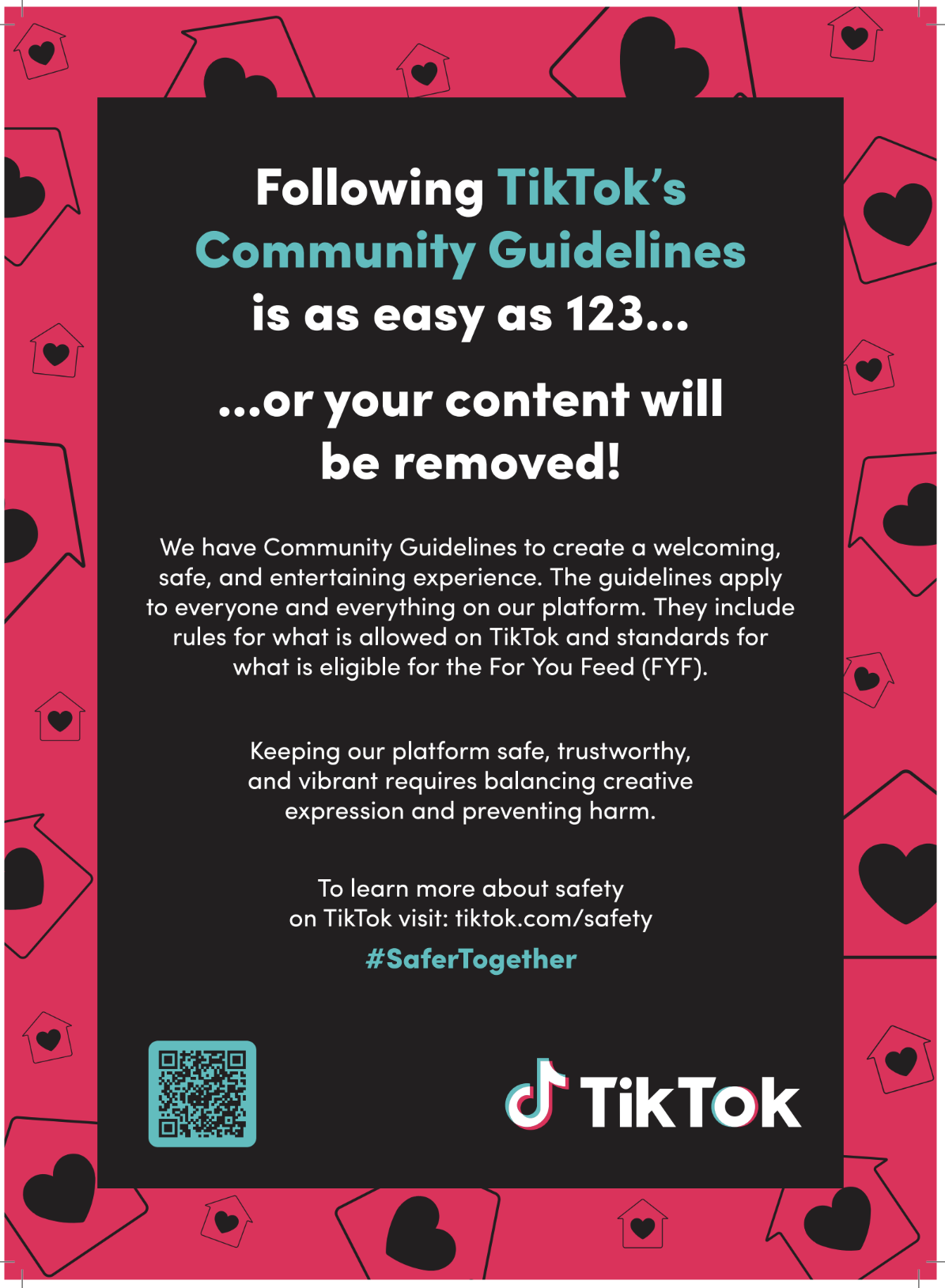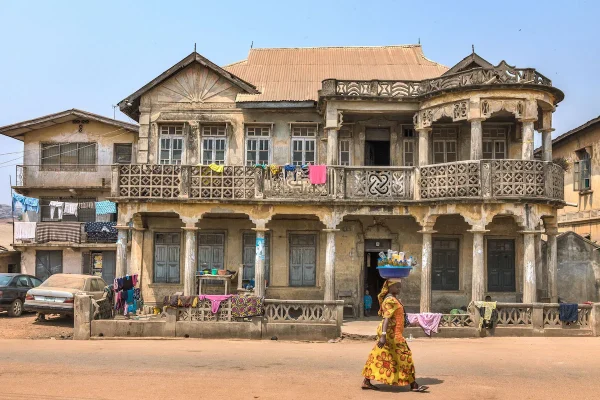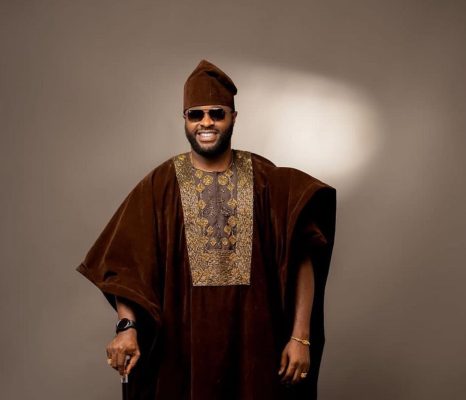Launched in 2022, TikTok’s #SaferTogether Campaign is reshaping Nigeria’s digital landscape through community-driven initiatives, strategic partnerships, and targeted education. This excerpt from a wider interview with TikTok and Data Science Nigeria highlights how collaborative efforts are empowering users and bridging digital literacy gaps.
In this conversation, Mercy Kimaku, TikTok’s Safety and Integrity Lead for Sub-Saharan Africa, and Aanu Oyeniran, Data Science Nigeria’s Business Development Lead, share insights into how TikTok’s #SaferTogether initiative is creating safer online spaces for Nigerians and beyond by tackling misinformation, cyberbullying, and privacy issues.
Overview and objectives
In 2022, TikTok launched the #SaferTogether Campaign in Nigeria. What was the intended impact of this initiative and what progress have you made since?
Mercy Kimaku (TikTok):
TikTok works to ensure the platform is a safe, creative space by proactively removing harmful content, empowering our community with safety tools, and continuously adapting to meet the diverse needs of our global community. We believe that safety is a shared responsibility, and this campaign encourages everyone to do their part.

From in-app activities to out-of-app workshops, #SaferTogether aims to engage users and raise awareness about enjoying TikTok safely. At its core, this is a community-driven, collaborative initiative designed to unite various stakeholders such as governments, civil society groups, creators, and the wider community in promoting safety on TikTok.
As a platform that champions creativity, self-expression, and community, we recognise that digital safety is foundational to fostering a positive and inclusive online experience. This campaign also addresses critical issues such as being able to identify harmful misinformation, protecting oneself from cyberbullying, privacy management, and digital literacy gaps, and ensuring that users—regardless of their digital proficiency, are empowered to engage meaningfully while protecting their online well-being.
READ ALSO: TikTok returns to Apple and Google app stores
In 2022, we announced our partnership with Data Science Nigeria (DSN), which has seen great success. In 2024, we announced phase 2 of the partnership, and this time, we were pleased to have the National Information Technology Development Agency (NITDA) on board as a partner.
This partnership aligns perfectly with NITDA’s mission to foster digital literacy, enhance technology infrastructure, and support inclusive access to digital tools and services. Together, we at TikTok, alongside NITDA and DSN, are committed to making Nigeria’s digital spaces safer for all while strengthening cybersecurity and digital trust.
In Phase 2 of the #SaferTogether campaign, we’re extending our reach to more regions, inclquding Edo and Kaduna, and covering crucial topics like misinformation, cyberbullying, sexting, digital citizenship, fake news, child sexual violence, and data protection. These workshops will engage a broad range of stakeholders, including civil society organisations, government representatives, community leaders, parents, teachers, and guardians.
Over the last few years, we have expanded this campaign to other African countries. We also announced our multi-year partnership with the African Union Commission’s Women, Gender, and Youth Directorate (WGYD) to provide digital safety education across the continent at our inaugural Safer Internet Summit which was held in Ghana in 2024.
Why is digital safety education important for TikTok’s mission in Africa?
Mercy Kimaku (TikTok):
As a platform committed to driving cultural conversations, empowering creative expression, and shaping the digital landscape, TikTok understands that safety is not a secondary concern; it is a prerequisite for digital empowerment.
Africa’s rapidly growing digital ecosystem presents a unique opportunity to instil proactive digital literacy habits early on. Ensuring Nigerian communities are equipped with the right tools to navigate the digital world responsibly is a corporate responsibility and a societal imperative. Through education, collaboration, and innovation, we aim to embed safety at the core of digital engagement across Nigeria and the broader Sub-Saharan region.
Since launching the #SaferTogether campaign, what partnerships have shown impact in amplifying the message?
Mercy Kimaku (TikTok):
Our on-the-ground and digital engagement strategies have enabled us to reach thousands of parents, guardians and teachers through direct workshops in Abuja, Lagos, Kano, Edo, and Kaduna, while our digital safety content has garnered significant traction across social platforms.

We also continue to launch in-app campaigns, collaborating with TikTok creators that are loved by the community; creators such as Grace Àkànní Lawrence (@theladymotara) who is educating the community about our platform’s community guidelines and Alli Agoro Nuradeen (@alli.nurudeen) who help encourage our community to use our safety features to ensure their privacy is protected in instances where they do not necessarily want to expose themselves to the wider TikTok community. Currently, our #SaferTogether hashtag has over 700 000 video creations globally.
This tells you that our community is coming together across the world to educate each other on staying safe on the platform. And as a platform that is for the community, by the community, this is very encouraging for us. It’s encouraging for us to see the community support one another in staying safe on the platform.
In Q3 2024, we removed over 2 million videos in Nigeria and 99.1% of these videos were removed within 24 hours. This showcases our commitment to proactively removing content in Nigeria that goes against our community guidelines and playing our part as a platform.
More than that, we are also proud to be able to work with the likes of National Information Technology Development Agency (NITDA) who have come on board as a partner for the second phase of the in-person workshops around various states in Nigeria. Again, in partnership with Data Science Nigeria and NITDA, we are rolling out these workshops with the goal of equipping parents, teachers, and guardians with the knowledge and tools needed to help young people safely navigate TikTok and the broader digital landscape.
How does TikTok plan to build on its safety efforts in Nigeria and more broadly, Africa?
Mercy Kimaku (TikTok):
Over and above the safety campaigns and partnerships, we believe in bringing in external parties that can provide insights into how we can continuously evolve our policies and our safety measures.
Since 2020, we’ve been building a network of Safety Advisory Councils around the world, including nine regional councils and a US Content Advisory Council. These groups bring together experts from all sorts of backgrounds—youth safety, free expression, hate speech, you name it. Their insights have been invaluable in helping us shape our policies, refine our product features, and stay ahead of the curve when it comes to safety challenges.
Now, with the announcement of our Sub-Saharan Africa Safety Advisory Council, we’re taking this commitment even further, bringing together independent experts from across the region to work closely with us on developing policies and processes that tackle today’s safety concerns and anticipate the challenges of tomorrow. Bringing in these diverse perspectives is key to our mission of keeping TikTok a safe, positive environment for our community.
Dr Akinola Olojo, expert on preventing and countering violent extremism in Nigeria, is one of our Safety Advisory Council members and he has already played a significant role in providing invaluable insights to our Trust and Safety team.
Data protection
What role has Data Science Nigeria played in the #SaferTogether campaign?
Aanu Oyeniran (DSN):
As a leading institution dedicated to advancing digital literacy and technology-driven learning in Africa, DSN has played a critical role in shaping and delivering the educational components of the #SaferTogether campaign. Our collaboration with TikTok has focused on the following:
●Localising safety messaging: We ensure the content is culturally relevant, linguistically accessible, and resonates with Nigerian communities.
●Developing structured learning materials. Our team has created comprehensive, research-backed training modules that equip educators and parents with practical online safety strategies.
●Facilitating community engagement: Through interactive workshops and discussions, we translate complex digital safety concepts into actionable insights for families, teachers, and young users.
●Driving behavioural change: By engaging stakeholders in interactive activities and personal pledges, we’re helping foster a safer digital environment.
●Equipping stakeholders: By providing actionable insights on managing digital footprints, combating cyberbullying, and protecting privacy.
Can you share key insights from your engagements with parents, teachers, and students?
Aanu Oyeniran (DSN):
Our engagement has provided deep, first-hand insights into how digital safety is perceived and applied in everyday life. Notably:
●Limited Baseline Awareness: Many parents and educators began with a minimal understanding of digital risks and protective measures, underscoring the need for foundational digital safety education.
●High Demand for Structured Guidance: Educators expressed the need for formal online safety curricula, highlighting that structured learning opportunities in schools are currently lacking.
●Parental Mindset Shift: Initially skeptical of social media, many parents gained the confidence through training to proactively guide their children’s digital experiences.
●Adoption of Safety Tools: There was a tangible increase in the use of TikTok’s safety features among parents, demonstrating the effectiveness of hands-on training and accessible resources.
●Integration of Digital Citizenship into Curriculums: Educators showed eagerness to incorporate digital citizenship topics into school programmes, indicating an opportunity to build long-term digital literacy and safety from an early age.
●Inclusive Engagement Drives Participation: The dedicated efforts, such as providing a deaf interpreter, ensured that all segments of attendees were properly engaged, emphasising the importance of accessibility and inclusivity in digital safety initiatives.
●Leveraging Past Event Content: Using past TikTok event videos and testimonials added significant value, reinforcing the brand and deepening the impact of the safety messages during break-out sessions.
●Effective Social Media and Content Amplification: Self-created content and strategic social media leveraging greatly enhanced mass awareness and the viral effect of the intervention, proving that targeted online campaigns can drive engagement.
●Post-Event Resource Sharing: Distributing slides to all participants, including those who could not attend live, ensured broader access to valuable information and reinforced key digital safety messages.
●Promoting TikTok Safety Features: Efforts to promote a TikTok safety features video—with QR codes for easy sharing—addressed parents’ need for accessible and continuous engagement with safety tools.
READ ALSO: I make ₦20m weekly on TikTok – Peller
●Enhanced Parental Engagement with Safety Features: Parents highlighted the need for ongoing support and accessibility regarding TikTok’s safety features, signaling that regular, updated guidance is essential.
●Recognition of TikTok’s Safety Capabilities: Participants acknowledged the value of TikTok’s seven safety features in promoting a safer online environment, suggesting that clear communication about these tools can bolster trust.
●Community Education on Digital Safety: Many attendees expressed a strong desire to educate both their children and wider communities about staying safe online, indicating a ripple effect that can extend beyond individual households.
●Vigilance in Children’s Online Activities: The recurring emphasis on being more vigilant about children’s internet activities shows that parents and educators are seeking more robust monitoring and control mechanisms.
●Interest in Broader Online Safety Topics: Attendees showed keen interest in learning more about online safety, privacy, and protection, which reinforces the need for ongoing education and support in navigating digital challenges.
●Accessibility through Support Provisions: The provision of a transport stipend was noted as particularly helpful, making event participation more accessible and demonstrating that practical support can enhance overall engagement.
●Overall Positive Event Feedback: Overwhelmingly positive feedback on the event’s organisation and delivery suggests that well-structured, interactive sessions are highly valued and effective in addressing digital safety concerns.
●Value of Post-Event Materials: The success of sharing post-event slides with all registered participants, including the over 550 who couldn’t attend, highlights the importance of making follow-up materials available to reinforce learning and extend impact.
Reception and engagement
How have Nigerian schools and communities responded to the campaign? Any notable success stories?
Aanu Oyeniran (DSN):
The response has been overwhelmingly positive and action-driven. Schools, in particular, have demonstrated a keen interest in integrating digital literacy into formal learning structures.
What are the most common digital safety concerns raised by parents and teachers?
Aanu Oyeniran (DSN):
Navigating Safety Features on TikTok: Parents expressed challenges in accessing and using the built-in safety features on TikTok. Since many do not use the platform themselves, they feel unequipped to help their children. This indicates a clear need for user-friendly tutorials and guidance that simplify the process of safeguarding their children on the app.
How can parents navigate TikTok’s safety features, monitor their children’s digital activity, and stay informed about online risks?
Aanu Oyeniran (DSN):
Parents can effectively navigate TikTok’s safety features and manage their children’s digital safety by using the following strategies:
Watch Demo Videos & Tutorials: TikTok offers official safety guides and video tutorials on its Safety Centre and YouTube channel, explaining how to use parental controls, privacy settings, and content filters.
Use TikTok’s Family Pairing Feature: This tool allows parents to link their account with their child’s, enabling them to set screen time limits, restrict content, and manage direct messages.
Monitor Digital Footprints: Parents can regularly review their child’s activity, educate them on responsible online behaviour, and use TikTok’s download data feature to check shared content.

Manage Overall Screen Time & Device Use: Built-in tools like Google Family Link (Android) and Apple Screen Time (iOS) help set device-wide usage limits, app restrictions, and bedtime schedules.
Stay Informed About Online Risks: Parents can research trending digital threats, including sexting slang and harmful challenges, by following cybersecurity blogs and platforms.
Receive Alerts on Safety Changes: While TikTok doesn’t directly notify parents if a child disables safety features, Family Pairing allows them to check and adjust settings as needed.
Challenges and solutions
What barriers exist to digital literacy and online safety education in Nigeria?
Several systemic and behavioural challenges continue to hinder the widespread adoption of online safety best practices:
●Limited access to digital resources in rural areas – Many communities lack reliable internet infrastructure and exposure to digital safety education.
●Cultural resistance to social media – Some parents still view social platforms as inherently harmful rather than tools for empowerment and learning.
READ ALSO: TikTok deletes over 2m videos for violating safety in Nigeria
●Fragmented information sources – While digital safety information exists, it is often scattered, inconsistent, or difficult to interpret for non-tech-savvy users.
●Inadequate Digital Literacy Among Parents and Educators: A lack of essential digital skills prevents many from effectively understanding and applying online safety measures, even when resources are available.
●Rapidly Evolving Digital Landscape: The constant pace of technological change often outstrips the development of up-to-date safety protocols, leaving stakeholders struggling to keep pace.







